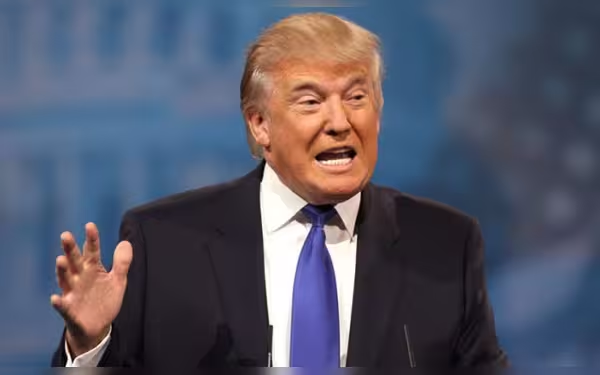Sunday, December 22, 2024 03:47 AM
Trump Issues Warning to BRICS on Alternative Currency Plans
- Trump warns BRICS against alternative currency.
- Severe economic consequences for supporting new currency.
- US dollar remains dominant in global trade.
 Image Credits: jasarat
Image Credits: jasaratTrump warns BRICS nations against launching an alternative currency, emphasizing the US dollar's dominance in global trade.
In recent developments, US President-elect Donald Trump has issued a stern warning to the BRICS nations regarding their potential plans to introduce an alternative currency to the US dollar. The BRICS group, which includes Brazil, Russia, India, China, and South Africa, is a coalition of emerging economies that has been exploring ways to enhance their economic cooperation. This year, the group expanded to include the United Arab Emirates, Iran, Egypt, and Ethiopia, further solidifying its influence on the global stage.
Trump's remarks come in light of discussions among BRICS countries about trading in their own currency instead of relying on the US dollar. He emphasized that any attempt to create or support an alternative currency would lead to severe economic consequences, including a potential 100% tax on energy. This statement underscores the significant role the US dollar plays in the world economy, as it is widely used in international trade and finance.
The former president firmly stated that there is no feasible way to replace the US dollar as the dominant currency in global markets. He warned that BRICS nations that choose to back an alternative currency would find themselves excluded from the US economy, which could have dire implications for their economic growth and stability.
As the BRICS nations contemplate their next steps, the implications of Trump's warning cannot be overlooked. The US dollar has long been the backbone of international trade, and any shift away from it could lead to significant changes in the global economic landscape. However, the BRICS countries are motivated by a desire for greater economic independence and may continue to explore alternatives despite the risks involved.
The ongoing discussions among BRICS nations about creating an alternative currency highlight the complexities of global economics. While Trump’s warning serves as a reminder of the US dollar's current dominance, it also raises questions about the future of international trade and the potential for new economic alliances. As the world evolves, it will be interesting to see how these emerging economies navigate their ambitions while balancing the realities of global finance.













